Mali stakeholder workshop encourages greater synergy between researchers and policy makers for effective adaptation
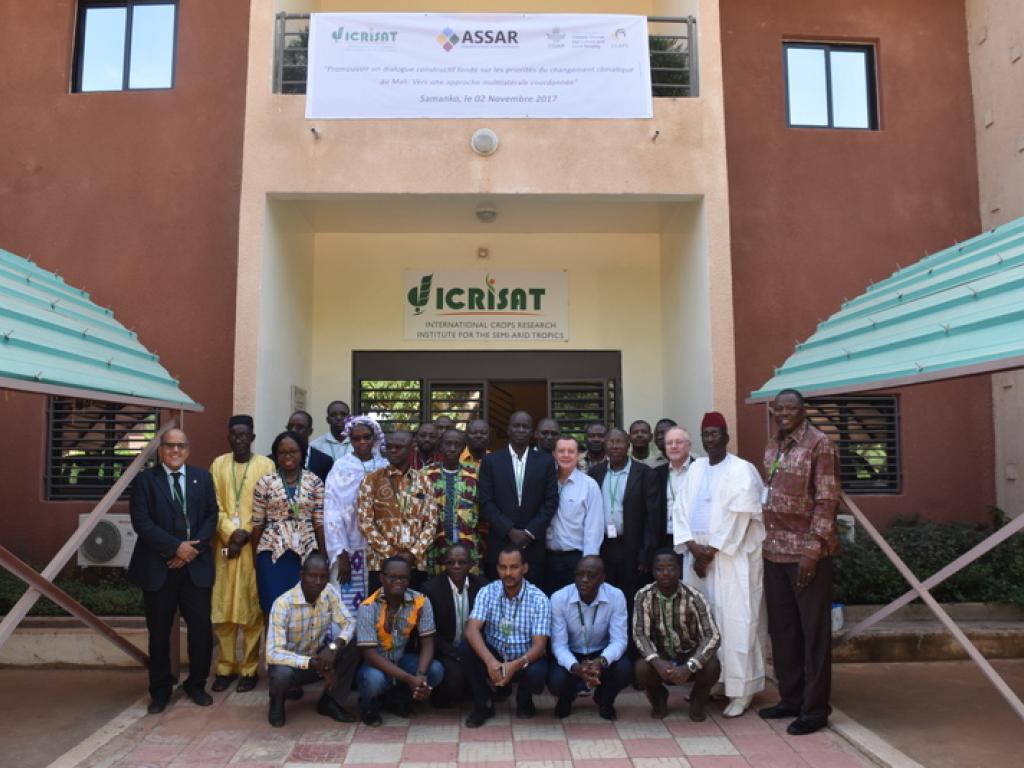
By Alcade Segnon, Edmond Totin and Amadou Sidibe, ASSAR Mali team
A workshop organised by the International Crops Research Institute for the Semi-Arid Tropics (ICRISAT), one of ASSAR's partners in West Africa, has sought to foster greater synergy between research and policy on climate change adaptation and food security in Mali.
Titled ‘Promoting a constructive dialogue between Science and Policy based on climate change priorities in Mali: towards a concerted multi-stakeholder approach’, the workshop brought together over 30 strategic stakeholders and partners to i) discuss their various experiences of climate change adaptation interventions in Mali, and ii) develop a collaborative framework or platform to help bridge the gaps between scientists, practitioners and policy actors for effective adaptation in Mali.
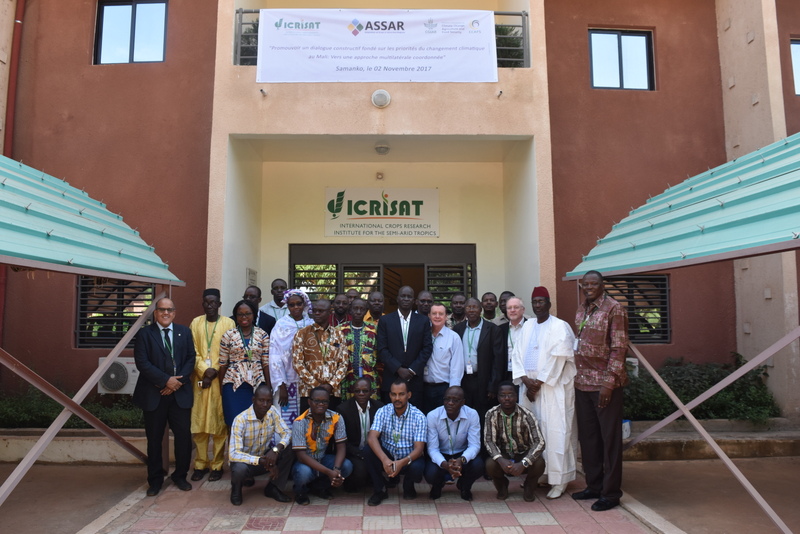
Group photo of stakeholders attending the ASSAR/ICRISAT workshop in Mali. (Photo credit: Dansira Dembele)
The stakeholders who attended the workshop include: researchers from the CGIAR system and the national research organisation IER; NGOs working on climate related issues (from both local and international); representatives from regional climate organisations (CILSS) and international donors (FAO, European Union); as well as government representatives, such as the special advisor on climate change for the Malian minister of environment and sustainable development, and a member of parliament (MP) who heads the Rural Development and Environment Commission at the National Assembly.
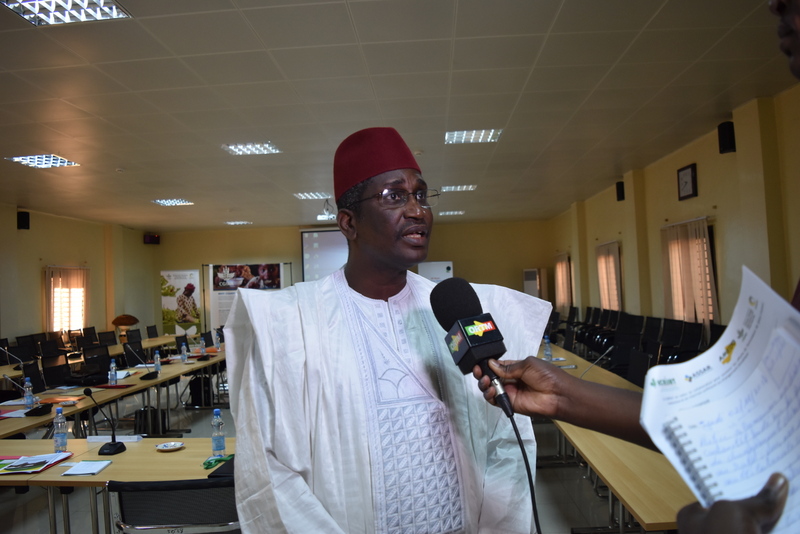
Special advisor on climate change of the Malian minister of environment and sustainable development. (Photo credit: Alcade Segnon)
During the workshop, various on-going climate change adaptation initiatives from all stakeholder groups (researchers, NGOs, government) were discussed.
Some of the experiences shared include:
-
Findings and ongoing activities of the ASSAR project in Mali
-
Climate-smart village initiatives and national science-policy dialogue platforms in Mali implemented by the CGIAR research programme on Climate Change, Agriculture and Food Security (CCAFS)
-
BRACED experience on strengthening communities’ use of climate information for decision-making (RIC4REC)
-
Disseminating a learning agenda on resilient-smart technologies to improve the adaptive capacity of smallholder farmers in Mali
-
DRYDEV (Dryland Development Programme) initiatives on Access to Market in Mali
The presentations created the opportunity for discussions on possible synergy and collaboration regarding the ongoing interventions. After the session, a participant remarked: “Through the different presentations, we clearly see that we have many synergies in our different work and we are engaging the same stakeholders. We will make greater impact by collaborating.”
In the second part of the workshop, participants were requested to reflect in small groups on ‘How to create synergy among climate change adaptation initiatives and make space for effective science-policy interface to support climate change adaptation in Mali’.
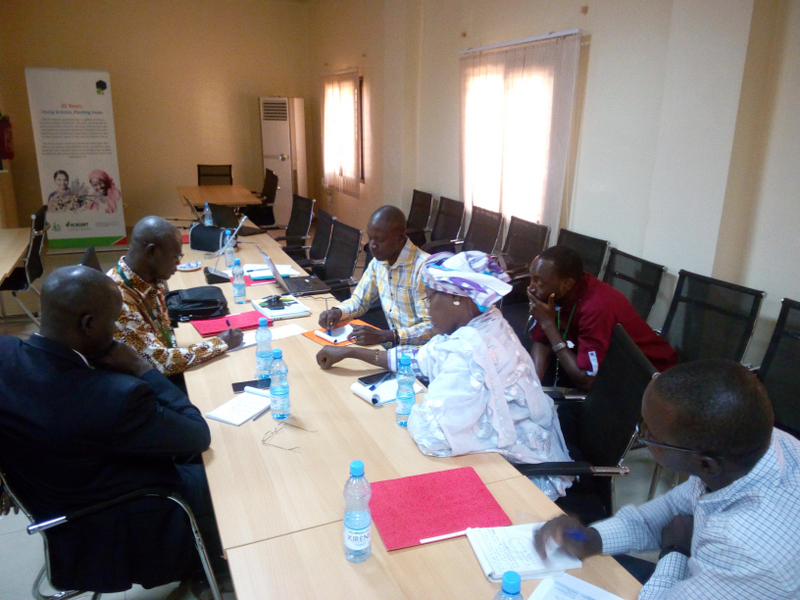
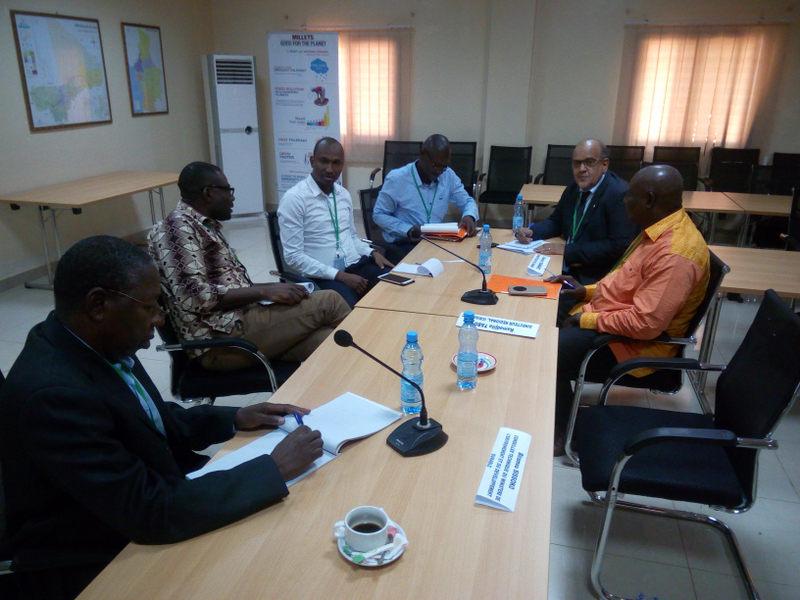
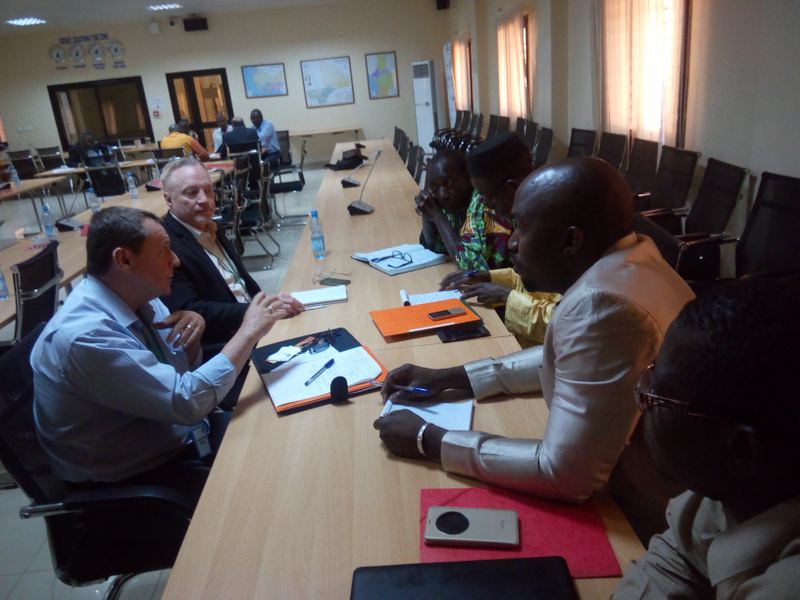
Participants reflecting on how to create synergy among interventions and how to strengthen science-policy dialogue for effective adaptation. (Photo credit: Alcade Segnon)
Following the group interactions, participants shared their ideas for creating and strengthening the synergy among strategic stakeholders involved in climate change adaptation in Mali.
There is a need to:
-
Operationalise the existing platforms or collaborative framework (e.g. National Climate Commission and CCAFS Science-Policy Platform) by involving more strategic stakeholders (e.g. donors) and including the dimension of collaboration in their agenda;
-
The government to take the leadership in developing a national framework to guide climate change initiatives, together with all relevant stakeholders;
-
Map all climate change interventions in the country to identify where there are gaps, and synergies to build on and inform future interventions; and
-
Re-activate the existing CCAFS Science-Policy Platform to be pro-active in connecting research and policy to support effective adaptation in Mali.
Member of Parliament He Drissa Tangara acknowledged the importance of the event as it brings together research-policy and civil society: “With this event, I have had the chance to hear what each of you are doing for climate change in Mali. We [policy makers] need this information on a regular basis to make more informed decisions. It would help a lot if we could activate the mechanism [as suggested in the working groups] to have more interaction in future.”